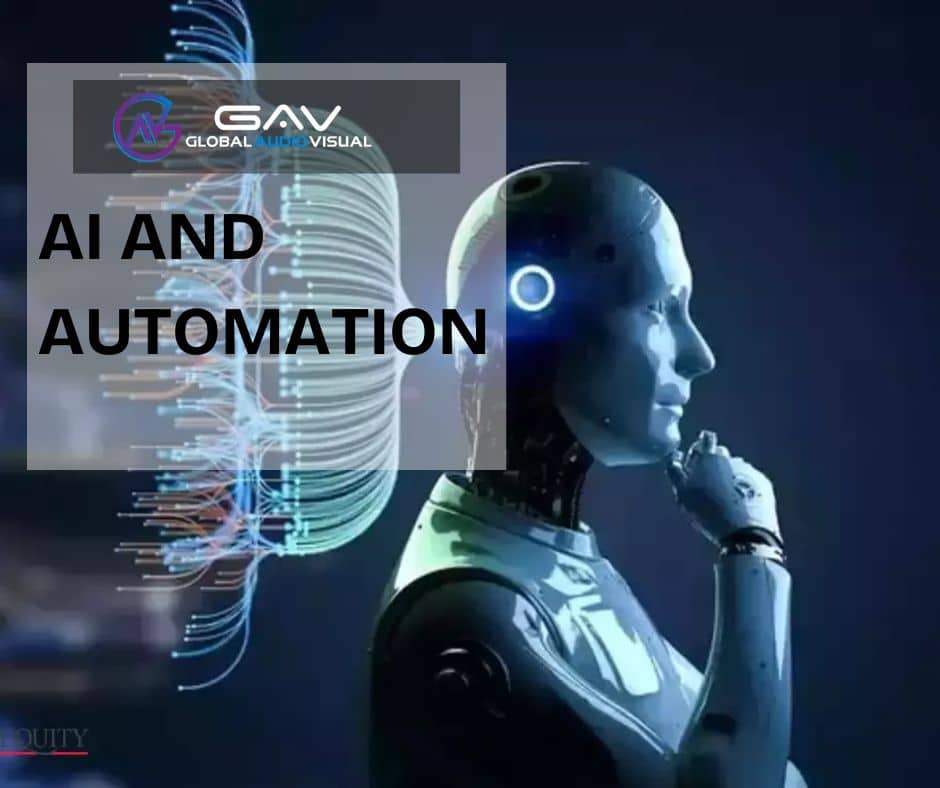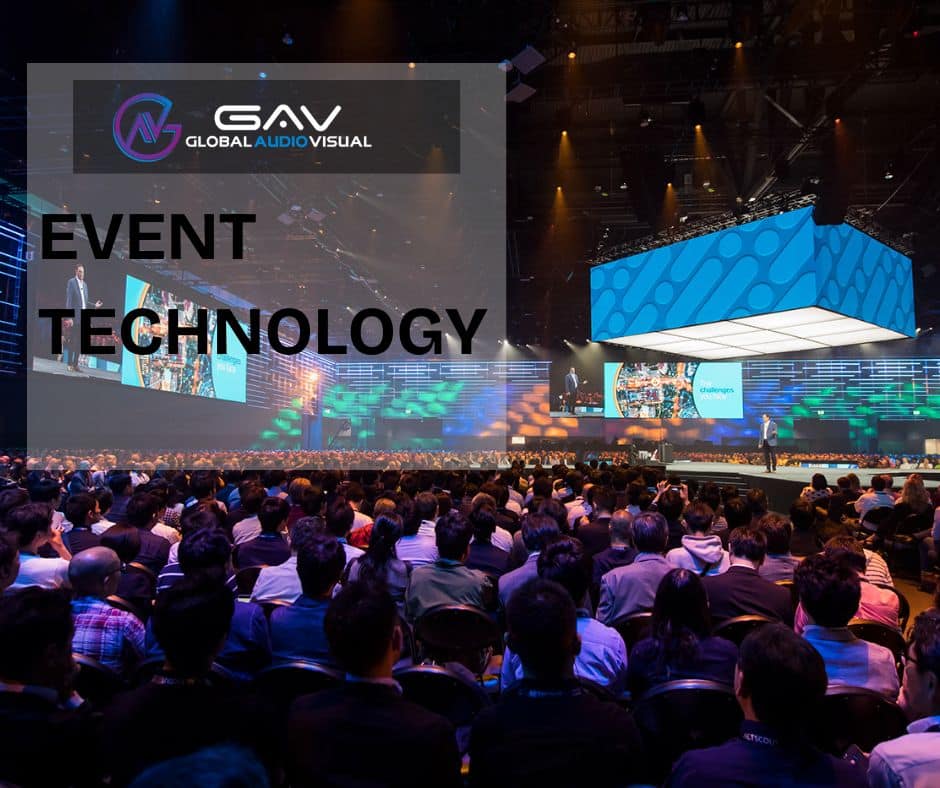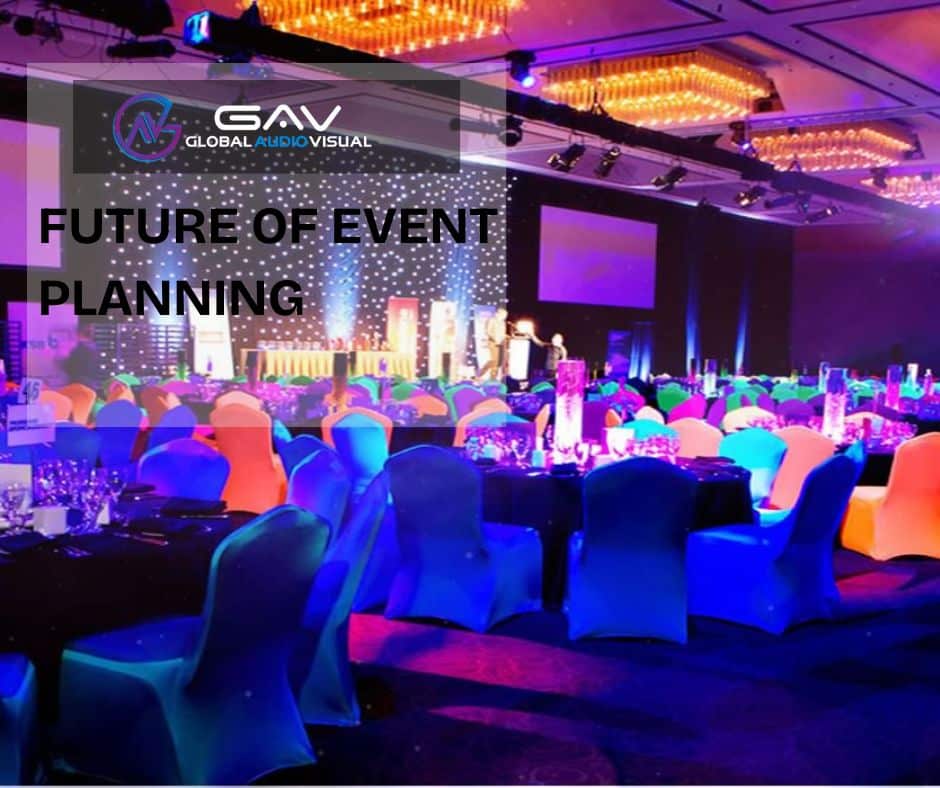In today’s fast-paced digital landscape, AI and Automation are undeniably transforming various sectors, and the event industry is no exception. From enhancing guest experiences to streamlining logistics, innovations are taking the concept of event planning and execution to unprecedented heights. As event planners strive to deliver more engaging and effective events, these advancements play a crucial role. This blog will delve into how AI and automation shape the future of event planning, covering everything from predictive analytics to the evolution of event technology.
The Role of AI in Event Planning
Artificial Intelligence (AI) serves as an engine of transformation for the event industry. By automating repetitive tasks and providing insights driven by data, AI empowers planners to focus on the creative aspects of event management while ensuring operational efficiency.
Enhanced Data Analysis with Predictive Analytics
One of the most significant advancements in AI technology is predictive analytics. By analyzing historical data and current trends, event planners can gain insights into attendee preferences and behaviors. This data-driven approach empowers businesses to make strategic decisions about everything from venue selection to marketing strategies, which ultimately enhances the event experience.
Personalizing Experiences
Integrating predictive analytics allows organizations to personalize their offerings, catering to specific audience needs. For instance, data collected from past events can inform organizers about the most popular content topics or the preferred format of sessions. This knowledge helps event planners create tailored experiences, enhancing attendee satisfaction.
In addition, AI-powered recommendation systems can suggest sessions, workshops, and networking opportunities based on attendee interests and previous interactions. By understanding what guests desire, planners can curate tailored experiences that foster engagement and satisfaction. Besides improving attendee experience, this approach can optimize event resources, making operations more efficient.
Streamlining Logistics
Another indispensable aspect of AI and Automation in event planning is logistics management. The manual process of scheduling, coordinating vendors, and managing event timelines can be overwhelming. AI-powered tools can automate many of these administrative tasks, freeing up event planners to focus on more creative and strategic elements of their events.
Automation in Registration and Check-in Processes
The guest registration and check-in processes can be daunting for event organizers. However, with automation, these processes can be simplified. Automated registration systems allow attendees to securely register beforehand, reducing bottlenecks at the venue. Furthermore, mobile check-in options can enhance efficiency and minimize wait times, leading to a smoother attendee experience.
AI can also mitigate no-shows by sending automated reminders to attendees. These reminders can include personalized messages based on attendee profiles, increasing the chances that they will attend the event.
Delegate Engagement through AI Chatbots
AI-powered chatbots are becoming increasingly popular at events. They serve as virtual assistants, available 24/7 to answer attendee questions, help with navigation, and even provide recommendations based on user preferences. These chatbots can analyze language patterns and tone, making interactions feel more personalized.
Chatbots can assist in creating seamless communication between attendees, organizers, and vendors. By reducing the workload on human staff members, AI chatbots allow for improved efficiency. Attendees can receive immediate responses, resulting in heightened satisfaction levels.
Event Technology: The Digital Transformation
The integration of event technology has played a pivotal role in modernizing the event industry. Technology solutions powered by AI provide event planners with tools designed to enhance engagement and deliver value to attendees.
Virtual and Hybrid Events
The rise of virtual and hybrid events has substantiated the importance of event technology. AI solutions enable seamless transitions between in-person and virtual components, allowing event planners to expand their reach and accommodate diverse audiences. Hybrid events, which combine physical attendance with virtual participation, have gained significant traction, particularly following the global pandemic.
Enhancing the Virtual Experience
Event planners can deploy sophisticated platforms that facilitate live streaming, interactive participation through Q&A sessions, and virtual networking lounges, enhancing the remote participant experience. Through AI integration, virtual platforms can suggest tailored networking opportunities, similar to how matchmaking occurs in dating apps, allowing attendees to connect based on shared interests or goals.
Engagement Tools
Innovative engagement tools powered by AI can significantly enrich the event experience. For instance, audience polling during keynote sessions can provide valuable insights to speakers and organizers in real-time. Attendees often appreciate having their voices heard, and these interactions generate a sense of community within the event.
Gamification Strategies
To further maximize engagement, event planners are increasingly adopting gamification strategies. By incorporating elements such as leaderboards, badges, and challenges, attendees can be motivated to participate actively. AI can analyze user behavior in real-time, adjusting challenges to enhance each attendee’s experience. This interactive approach not only fosters higher engagement levels but also extends the event’s overall impact.
Networking Opportunities
In-person and virtual events both offer opportunities for attendees to connect, but event technology can amplify these networking opportunities. AI-driven matchmaking algorithms can help attendees find others with similar interests, facilitating introductions and creating valuable connections. By considering common goals, professional backgrounds, or even personality traits, networking becomes more meaningful and strategic.
AI-Powered Networking Tools
Some advanced platforms offer AI-driven features that enable attendees to schedule meetings with each other based on their interest areas. These smart suggestions save attendees time and energy while ensuring that the connections being made are relevant and beneficial. Providing a smoother networking experience can significantly enhance the value of the event for participants.
How to Become an Event Organizer
With the growing demand for well-executed events, many individuals are looking into how to enter the field as event planners. Understanding the latest trends and technologies in the industry, particularly in terms of AI and automation, is crucial for anyone aspiring to become an event organizer.
Gaining Relevant Skills
To become a successful event planner, individuals should focus on obtaining a blend of hard and soft skills. A formal education in event management, hospitality, marketing, or business can provide foundational knowledge. However, it’s equally important to refine critical skills such as crisis management, negotiation, and communication, which can be pivotal in high-pressure situations.
Practical Experience
Gaining hands-on experience is fundamental for anyone looking to build a career in event planning. Internships or volunteer roles at large-scale events can provide insights into the intricate details involved in event organization, from behind-the-scenes logistics to guest interactions.
Staying Updated on Industry Trends
Keeping abreast of the latest advancements in event technology and AI will position aspiring planners above their competition. Attending industry conferences, workshops, and participating in professional associations will help newcomers establish a network of peers and mentors. Understanding how much event planners make compared to other jobs in the industry can help gauge one’s potential success, guiding individuals toward making informed career decisions.
Continuing Education
As technology evolves, so do the necessary skills and knowledge in the event planning sector. Pursuing certifications or specialized training in new technologies, especially those that revolve around automation and AI, can enhance a planner’s marketability and professionalism.
Networking and Building Connections
Networking is an essential aspect of establishing a successful career in event planning. By attending industry conferences or even participating in workshops, aspiring organizers can connect with seasoned professionals, learning from their experiences. These interactions can provide valuable insights and mentorship opportunities.
Why Choose Global Audio Visual for This Service?
When it comes to executing high-quality events that leverage the latest in event technology and AI, partnering with a professional service like Global Audio Visual can elevate the experience. Their expertise in audio and visual solutions ensures that every facet of an event is professionally managed, from setup to execution.
Comprehensive Service Offering
Global Audio Visual offers a range of services tailored to meet the needs of event planners. They provide cutting-edge equipment, live-streaming capabilities, and event production expertise that ensures every aspect aligns with the event’s goals and audience.
Customized Solutions
Every event is unique, and Global Audio Visual is adept at offering customized solutions that align with specific event goals. By taking the time to understand client needs, they can adjust their services accordingly. Whether planning a corporate gathering, product launch, or an educational seminar, their commitment to high-quality delivery sets them apart.
Advanced Technology
Utilizing the latest technology tools enhances the overall event experience. Global Audio Visual is constantly updating its technology offerings, ensuring that its clients benefit from the best available resources. From high-quality sound systems to visually stunning displays, they ensure all technological aspects resonate with the audience.
Looking Ahead: The Future of Event Planning
The future of event planning will undoubtedly be shaped by ongoing advancements in AI and Automation. These technologies will continue to enhance how event planners strategize and execute events, making them more efficient and impactful.
Embracing New Technologies
As new technologies are developed, event planners must remain agile and open to embracing these innovations. Staying ahead of trends in event technology and understanding how to leverage predictive analytics will be vital for success in the evolving landscape.
Anticipating Changes in Attendee Behavior
With ongoing digital transformations influencing how attendees consume content, planners must anticipate shifts in behavior and preferences. Engaging with attendees both online and offline allows event planners to gather valuable insights that inform future events.
Elevating Attendee Experience
As solutions advance, so too will the capacity to elevate attendee experiences. Personalized experiences, facilitated through AI insights, will likely become the standard in the industry. As attendees increasingly expect tailored experiences, event planners will need to adapt and deliver innovative solutions.
Conclusion
In conclusion, understanding how AI and Automation are changing the event industry is essential for current and aspiring event planners alike. In an era where personalization and efficiency are paramount, organizations must leverage event technology, such as predictive analytics, to stay competitive and relevant. By recognizing the transformative potential of these advancements, event planners can create memorable experiences and foster valuable networking opportunities for all participants. Ultimately, those who embrace change will be the visionaries leading the future of event planning onward into the digital age.
With the insights shared in this blog, aspiring event organizers can find guidance on how to become an event organizer, facilitating their journey to success in this dynamic industry. By tapping into the power of AI and automation, they will not only enhance their skillset but also contribute to the unfolding narrative of the event industry’s evolution.
These advancements promise a robust future filled with creativity, efficiency, and experiences that truly resonate with audiences, thereby enhancing the very fabric of the event industry.




